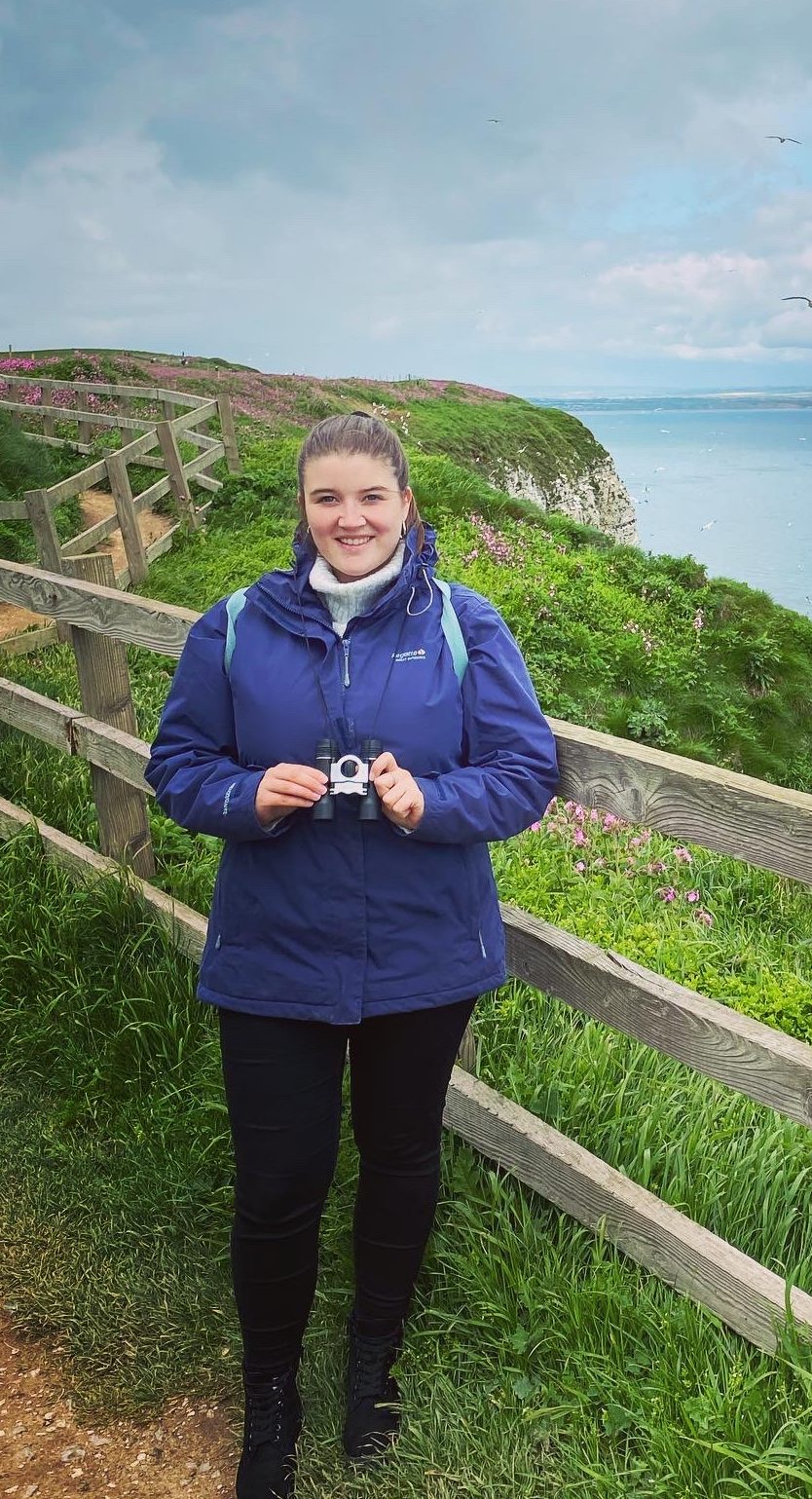Our world-leading environment and sustainability research underpins a wide range of postgraduate programmes. In our Meet our Alumni series we hear from graduates of our MSc courses within the Graduate School of Environment and Sustainability and learn about their experiences at the University of Exeter, Cornwall. Today we hear from Amy Corthine who graduated from our MSc Conservation and Biodiversity course. Amy went on to become a Coastal Lead Advisor with Natural England.
Country: United Kingdom
Sector: Government
Job title: Coastal Lead Adviser
Subject of study: Conservation & Biodiversity
Current Employer/Organisation Name
Natural England
What have you been doing since leaving Exeter, and what are you doing now?
Since leaving Exeter, I worked at University of Liverpool as a lab technician. I focussed my time working on peppered moths and was looking at melanism mutation. Alongside this role, I started working for Natural England. I was based in a central support team working in the Cheshire to Lancashire Area. This role really peaked my interest in coastal work and I now work as a coastal lead adviser within the Coast and Marine Team in Natural England. I am also the responsible officer for the Mersey/Dee Estuary. This role is really varied and everyday is different one day I can be doing habitat restoration to prevent avian influenza spread in coastal birds, the next I could be working with the police to stop unauthorised vehicles entering a protected site, another I can be joining partnership meetings trying to create action plans to collaboratively find solution to protect and restore nature. My role consists of lots of different elements including managing sites to help them recover and become more resilient, creating project proposals and bids to gather important evidence for nature, statutory casework and condition assessments to understand the current condition of our protected sites.
Why did you choose this career? And what do you enjoy most about your work?
Natural England is a great organisation to work for and the breadth of work you carry out is so varied. This role has allowed me to be involved in enforcement work, statutory casework, habitat restoration, partnership work and condition assessments with lots of field survey work. No two days are the same and I am always learning within my role. There are also great networks you can join which regularly host webinars in that subject area – for instance I am part of the climate change and Invasive Non-Native Species Network so it’s great to hear all about the work happening both within Natural England but also internationally.
What did you enjoy most about your programme and what was the biggest highlight?
I really enjoyed the research project – I was lucky enough to study wasps in Southern Spain so that was a really great experience and provided me with lots of useful field skills. Of course the biggest highlight was the field course to Kenya – this was great to see different types of conservation efforts and have thoughtful discussions on what we thought was most effective.
What did you enjoy most about studying here?
The people! I made friends for life at Exeter and they really made the course so special.
Why did you choose to study at Exeter?
The course really stood out to me with a range of modules that I thought would be useful for my career.
What skills and experiences have been most useful for your career?
Field skills have been really important. I also think being able to write a good email/report has really helped me in my career. My top tip is to network – we all hear it at Uni but without networking I never would have gotten the opportunities I have.
What advice would you give to a current student who wishes to pursue your career?
Don’t give up! It can feel hopeless at times as a career in conservation is so competitive however determination and enthusiasm goes a long way and can make you stand out from other candidates. Also networking is so important you never know who will be interviewing you in future and it may just be someone you’ve met at a conference or at a lecture.
What are your plans for the future?
My plans for the future are to continue working hard for nature and to continue building strong relationships with partners and stakeholders so we can have a joint approach to tackle issues. I also want to continue educating people on the importance of nature on their doorstep. Ultimately, I would like to progress to a coastal senior adviser.
The Graduate School of Environment and Sustainability brings together experts from across the spectrum of earth and life sciences, engineering, humanities, social sciences and business. Our programmes are all designed with a focus on developing solutions to global challenges and creating a better future for our planet and its people. Help lead a global Greener, Healthier and Fairer revolution by studying one of our world-leading, interdisciplinary Masters degrees here at the University of Exeter, Cornwall. See our Masters programmes here.

